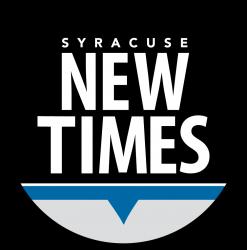Blended learning is the integration of traditional and progressive classroom methods involving both online and face-to-face learning. Many still ask if an LMS can provide a personalized experience since this tool (LMS) is conventional. One might think it is still a one-size-fits-all approach that goes out in this era. In this post, we discuss how an LMS can help customize education according to individual needs.
What Is Blended Learning?
Blended learning integrates both in-person and digital resources. This allows learners to access materials at their own pace, even while interacting with the teacher directly. LMS blended learning connects the age-old formal education and contemporary technological progression to create a well-rounded learning experience.
Importance of LMS in the Blended Learning Process
A Learning Management System (LMS) plays an important role in blended learning environments. It streamlines course management for educators by organizing, delivering, and tracking educational content. An LMS means students have a central place to get their assignments, quizzes, and multimedia resources. It provides a bridge for a seamless transition from virtual to face-to-face education.
Educational Personalization
Personalized learning means taking a customized approach to learning experiences that is custom-tailored to individual students. Adaptive learning involves customized content delivery, pacing, and learning paths based on the user’s preferences and performance. We use personalized education to encourage more engagement and motivation and, in turn, successful schoolwork.
Where an LMS Comes in to Increase Personalization
An LMS can play a significant role in creating personalized learning experiences. It provides data analytics to understand how students are advancing and necessary adaptations to teaching style. Below are a few examples of how you can give personalization via an LMS:
Adaptive Learning Paths
Using LMS to determine the strengths and weaknesses of the students can create adaptive learning paths. It tailors the content according to their skill level and offers every learner the right level of challenge. This flexibility helps to keep students motivated and encourages them to improve constantly.
Customizable Content
Course materials in an LMS can be personalized by educators themselves. Students have the flexibility of selecting the best format that suits their learning preferences by providing multiple resources, including videos, readings, and interactive quizzes. This flexibility appeals to various preferences, contributing to a more fulfilling learning environment.
Feedback and Assessment
Providing feedback as soon as possible is the best opportunity for a student to evolve. This is because an LMS provides on-demand insights into performance when you test your employees with assessments or quizzes. The ability for educators to spot students who may need extra help and respond with targeted interventions.
Flexible Scheduling
An LMS gives students the ability to access course materials anywhere or anytime. This gives the flexibility of studying at their own pace due to varied schedules and learning paces by all the students. This independence provides motivation and promotes self-education.
Engagement Tools
Discussion boards, forums, and interactive activities featured in an LMS make collaboration and communication easier to promote. These tools foster a sense of community among learners, adding a fun element to the whole learning experience.
Personalization: What Makes It Difficult to Implement
Despite all the personalization benefits that an LMS offers, there are challenges. Personalized learning is not simple; it takes thought and resources. Educators must ensure that the tech serves their educational purpose and works as it should. Furthermore, there is a need to balance the individualization it brings with the overall standardization of education quality.
How LMS Will Further Personalize Learning
The more technology advances, the more possibilities of personalized learning inside an LMS there will be. But further down the line, these may include increasingly sophisticated analytics, artificial intelligence implementation, and user interface capabilities. These innovations will no doubt usher in even more personalized pedagogies for educators and learners alike.
To Sum Up
An LMS is invaluable in a blended learning framework that enables personalized education. It improves the students’ learning experience by providing effective learning paths, customized content, and flexible schedules. Despite challenges, the potential for growth and improvement is vast. While the future of personalized learning is still advancing, more and more teachers are going to provide a better experience for students using these tools.


